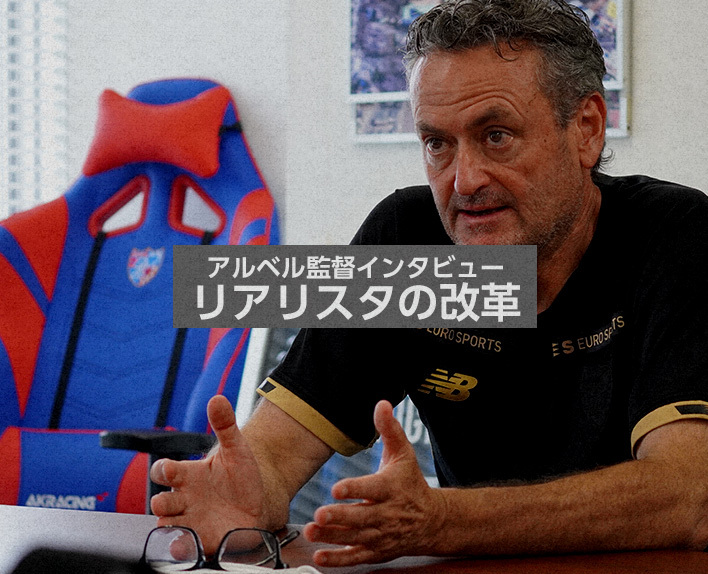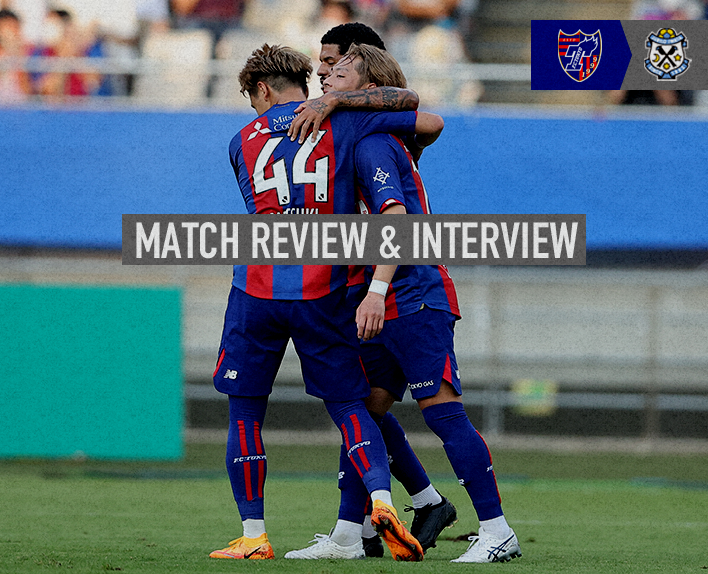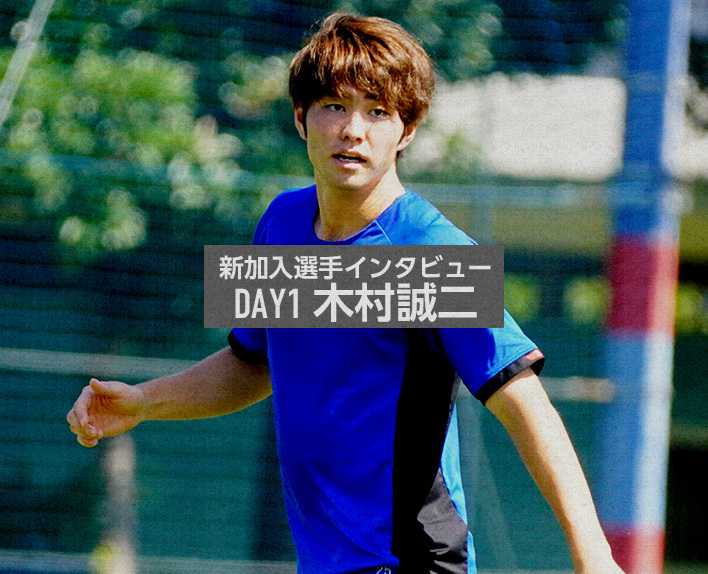Albert PUIG ORTONEDA took over as coach and the 2022 season, which aims to build a new playing style, is now down to the final third. How much has the team grown so far? We interviewed sports writer Atsushi Iio, who also interviewed coach Albert before the start of the season, to ask the commander about the team's current position.
Q, the match against Hokkaido Consadole Sapporo on July 6th was a test match for vocal support operation. It was the first time for Coach Albert to hear cheers and chants in Japan since the opening match of the 2020 season when he was leading Albirex Niigata. How did you feel about the singing voices of the fans and supporters?
A, I think the atmosphere of the stadium has returned to what it should be. Over the past two years, there have been games played without spectators. Even when fans and supporters started filling the stands again, we couldn't hear their voices. I think you all felt frustrated, and we did too. On that day, I want to convey to those who cheered for us at Ajinomoto Stadium, that "You'll Never Walk Alone" and the call of "Alber Tokyo" reached us loud and clear. Your support pushed us forward and allowed us to have a fantastic game. At the same time, we could hear the Sapporo fans and supporters cheering until the very end. We want to express our gratitude to the fans and supporters of both teams who created an amazing atmosphere.
Q: By the way, what do you think Albert PUIG ORTONEDA thinks of himself as a romanticist or a realist, as a type of coach?
A, suddenly, what's wrong (laughs). I consider myself a realist.
Q, why do you think so?
A, Romantistais something that ends just by dreaming. However, I always look at reality in order to incorporate my ideal soccer into the team. In recent years, with the spread of the internet and the development of technology, soccer analysis has advanced extremely, but on the other hand, I feel that the elements that soccer originally possesses are being lost. For example, there is an overflow of tactical analysis of soccer on the internet. There is a prevailing opinion that winning a game means winning tactically, and losing a game means having a bad tactic, but soccer is not that simple. A team is a group of living human beings. Each person has strengths and weaknesses, and sometimes they have problems off the pitch. The coach must bring together such living human beings effectively. That's why, while having ideals, I always face reality.
Q, the reason is that in the first 10 games of the season, there were many direct plays and the style from the previous season was strongly evident. We gradually want to incorporate the playing style we aim for while earning points and make it possible to embody "soccer that loves the ball". I felt the skillfulness in this aspect.
One thing I felt when I first came to this club is that there are few players in their late 20s and many young players and veterans in the team composition. Furthermore, we were also affected by the new coronavirus in the early part of the season. If I had stuck to my ideals in such a situation, what would have happened? We might have been fighting to avoid relegation by now. What I should do this season is to gradually get the team used to a new playing style and build a foundation, while giving opportunities to young players and rejuvenating the team little by little. If you compare the possession rate of the past few years and this season, you can understand that things are gradually changing.
Q, while building a base and giving young players a chance, and earning as many points as possible. In the midst of such difficult challenges, I think the matches against Shimizu S-Pulse on May 25th and Kashima Antlers on May 29th embodied the soccer that Coach Albert PUIG ORTONEDA aims for. Especially the match against Kashima Antlers was a game that showed the guideline of "this is the standard".
A, I think we played well in those two matches. Also, the first half of the Emperor's Cup match against V-Varen Nagasaki on June 22nd and the match against Sagan Tosu on June 26th were not bad. It can be said that the team has progressed to the next phase. However, as we have become able to possess the ball, technical mistakes have become more noticeable and we have been exposed to counterattacks more often. This is a new challenge that comes with growth. It still takes time to be more composed in controlling the ball, provide appropriate support, and aim for the opponent's goal at the right timing.
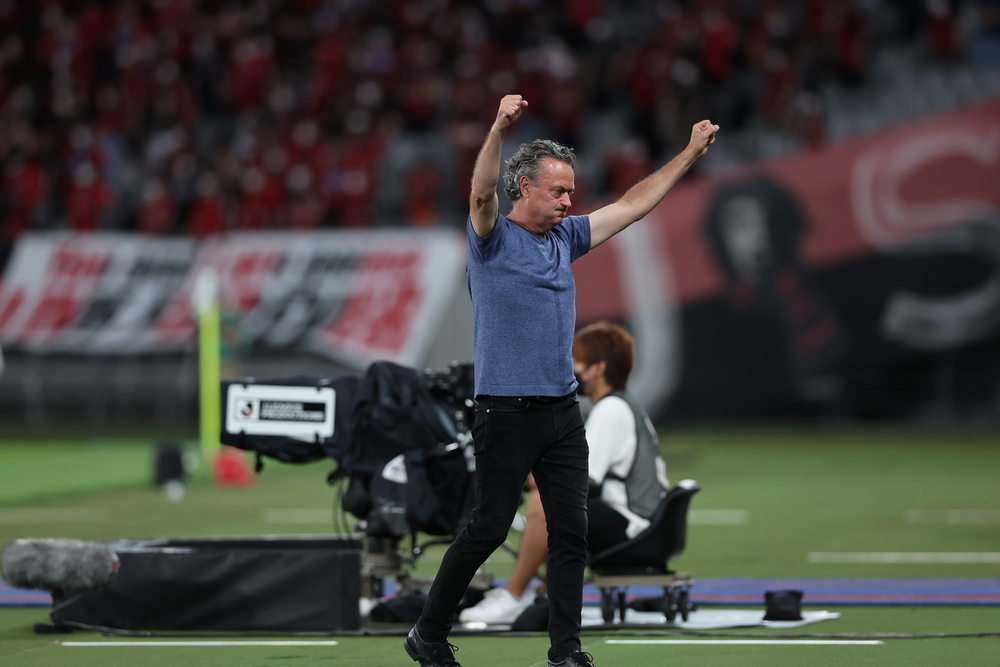
Q: When you are building your style, you said, "Sometimes you have to take two steps forward and one step back."
A, moreover, there are many injured players. When so many players get injured, there is a limit to what the coach can do. Due to the absence of Henrique (Trevisan), Morishige (Makoto) and Kimoto (Yasuki) have to continue playing as center-backs. Hotaka Nakamura, Takuya Aoki, and Shuto Abe are also injured, while Adailton and Diego Oliveira are playing with pain. Because of this team situation, we had to rely on 18 and 19-year-old players in the center of the team.
Q, it's Kuryu MATSUKI and Yuki KAJIURA, right?
If there had been no passing mistakes by Kajiura in the match against Urawa on July 10, and we had reached halftime at 0-0, the flow of the match would have been completely different. It may sound harsh, but that conceded goal had a significant impact on the course of the game. It was a painful goal for the team, but I believe Kajiura gained very valuable experience. Such experiences can only be gained by being on the pitch. However, I must reiterate that we have only been working on a new playing style for six months, and we are still in the process of building a foundation. Even at Albirex Niigata, which I led, we struggled in the first year, but in the second year, we established a clear playing style and were able to achieve results. Yokohama F.Marinos, who won the championship in the 2019 season, also had a new coach in their second year. (Josep) Guardiola of Manchester City did not win any titles in his first year, but made significant investments in his second year and achieved two titles. (Jürgen) Klopp of Liverpool experienced the same.
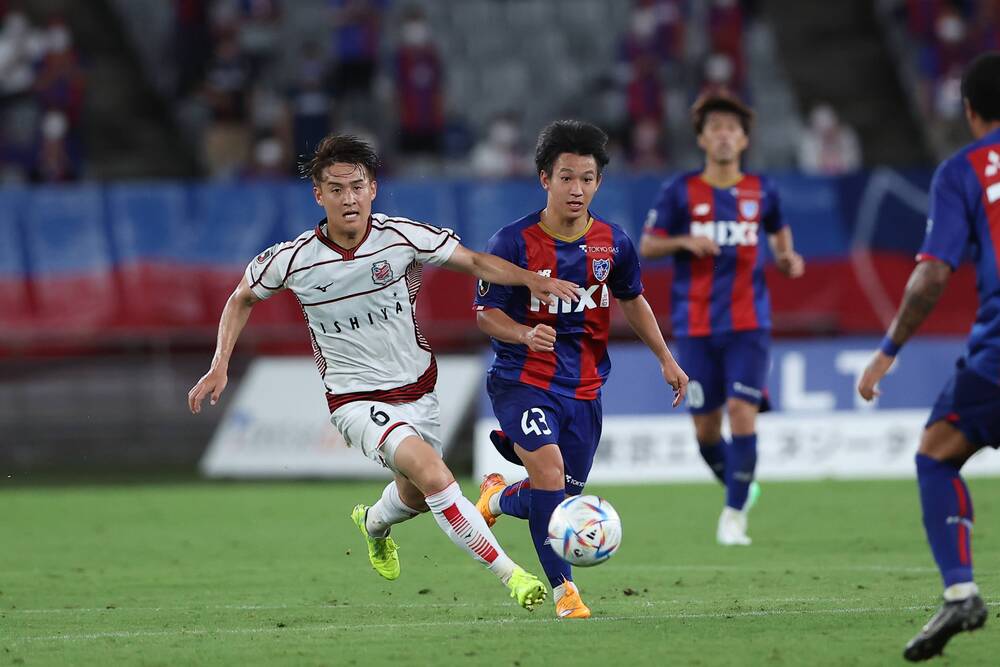
Q, Klopp won his first title at Liverpool in his fourth season.
A, I don't know if I will be given that much time (laughs), but I want to create a team that can aim for the title step by step. The coach is not a magician. Of course, I will accept criticism when we lose, but the club has just started its reform. I hope you understand that.
Q, The performance of Ryoma WATANABE was outstanding in the first half. He played as a right-back, right inside-half, and right winger, and fulfilled the required roles effectively. How does Coach Albert PUIG ORTONEDA feel about his performance and abilities?
A, Ryo is one of the player images I am looking for. His main position is MF, but he can play like a wing and sometimes like a side back. There is still room for improvement in ball possession, but he is doing very well. In the game, we have to respond to various flows. Lea (Leandro) is also like that, versatile players expand the range of tactics and strategies, so they are valuable.
Q, Furthermore, I am particularly interested in Yuto NAGATOMO and Keigo HIGASHI. NAGATOMO had a delayed arrival due to national team activities and did not have the opportunity to play in the early stages of the season, but he seized the right full-back position. HIGASHI had been warming the bench for a while, but he seized the opportunity that came as an anchor, which is not his main position. Amidst the generational change, it is impressive to see the strength of the veteran players who have prepared themselves without rotting and are making a comeback.
A, Nagatomo is one of the few Japanese players who have continued to play for great clubs in Europe. The reason why he has been able to continue fighting at that level is because he has a soul that is dedicated to competition. He is full of eagerness to learn and always gives 100% in practice. He faced criticism last year regarding his performance for the national team, but he bounced back with a strong mentality and effort. I recognize that players with a mentality like his are the ones who become great players. Young Japanese players should learn a lot from Nagatomo. Keigo also has a strong mentality and excellent skills. As you mentioned, he has overcome difficult situations and is now playing as an anchor. It's as if he has been playing in this position for a long time. I think it's a position that suits him well.
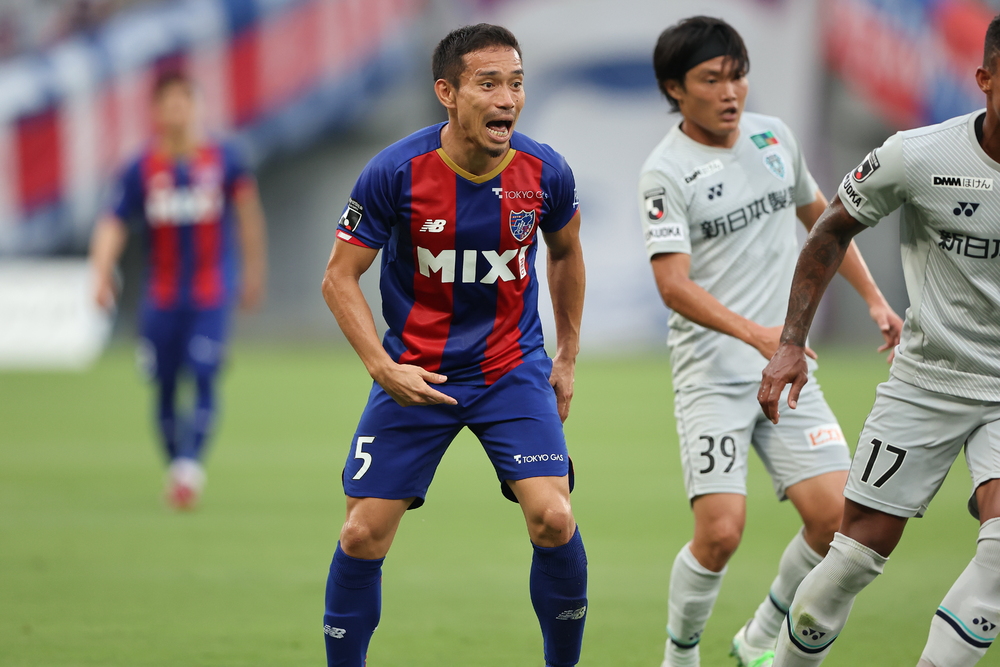
Q, on the other hand, in the inside half, mainly Abe and Matsuki are used. I think they are players who rely more on intensity than creativity. Is intensity more important in the image of the inside half that Coach Albert is looking for?
Even if I instruct A, Kyouto to "play like Iniesta," it doesn't mean he can become Iniesta. As a realist, I first want to make the most of the strengths of the players in front of me. Of course, I also expect them to gradually improve. For example, it is clear to everyone that Kuse has made significant growth in the past few months. I think there is a big difference in both intensity and quality when he has the ball compared to the beginning of the season.
Q, there were important farewells with the players this summer. First, let's talk about Ryoya OGAWA. What kind of words did you say to send him off?
He said, "First, I want you to make use of what you have learned in the past few months in order to perform at a high level in Europe. And be mentally strong." He emphasized the importance of having a strong determination to compete. He also mentioned that many Japanese players who play in Europe must overcome challenges. This is adaptability. Going back to the previous discussion, Nagatomo speaks Italian. However, if he goes to Italy, he cannot immediately master the Italian language. Nagatomo said that he doesn't need an interpreter in order to learn the language faster. On the other hand, I have heard that there are Japanese players who have lived in Europe for several years but return without learning the language. Therefore, I told Ryo that it's either he can adapt well or he will come back by Christmas."
Q, what do you think about Kensuke NAGAI and Yojiro TAKAHAGI? I believe there are quite a few shocked fans and supporters.
Regarding Kensuke, he wanted a different playing style and a different location in order to play as an active player for a longer period of time. It is unfortunate that he is leaving as he played an important role in this team, but I wanted to respect Kensuke's feelings. Since it is a transfer within the same league, I am looking forward to competing against him. Yojiro also has a desire to continue playing for a longer period of time, and I think this transfer will be a plus for him. His technical level is excellent, but as he is getting older, it has become difficult for him to constantly run and sprint. I hope he will have plenty of playing time at Tochigi SC, and at the same time, I advised him, "It would be better to prepare for becoming a coach while playing."
Q, is it sometimes necessary to part ways during the process of reform?
A, of course, it is an unavoidable path in football. After the first year in Niigata, many foreign players left. I think that player turnover is necessary to achieve the desired style. Manchester City and Liverpool, for example, aim to improve their style and strengthen their team every year by changing players. If you change your style and concept without doing that, you will fall into a negative cycle. For example, in Niigata now, Coach Rikizo MATSUHASHI is continuing the style I established and leading the team in a good direction while making some player changes. In Tokyo, when I left, I hope that the successor will inherit the style and ideas and lead in the same direction. I think that is the secret to success.
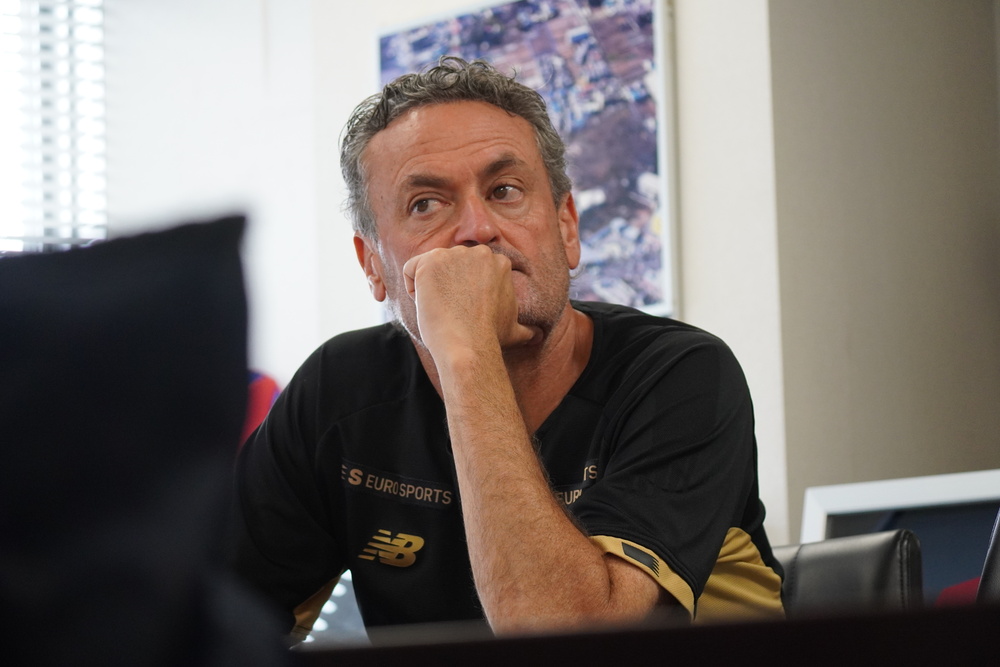
Q, I think you are also making efforts to reform the club. You have said, "We must change the club's mentality." What kind of mentality do you currently have, and what do you want to change?
A, we must not forget that a club is an organization built by real human beings. I believe that in order for the team to develop a winning mentality, everyone involved with the club must possess it as well. We must not become complacent. In every department, we must continue to demand more from ourselves. A winning mentality means always being hungry for victory and doing everything possible to achieve it. This applies to the club's management, the strengthening department, the marketing department, and public relations as well. In the case of public relations, we must always work to ensure that this club receives more coverage from the media and continue our efforts to disseminate information about the club. Every department must always aim higher. I believe that is the winning mentality within the club. Even if we change our playing style, without a winning mentality in the club, we cannot achieve great success. When you enter a great club in Europe, you can feel the winning mentality from the moment you step in. I would be very happy if Tokyo could acquire that.
Q: We are now one-third into the season. What kind of season do you want to finish with?
A, I would like to continue seeking the same things as before. It is about being committed to the competition, making daily efforts, and continuing to grow. And I want to build a solid foundation and connect it to the next season.
Text by Atsushi Iio (Sports Writer)


